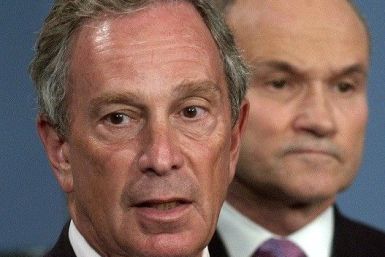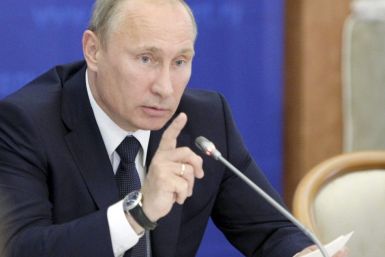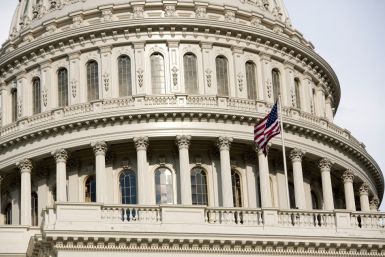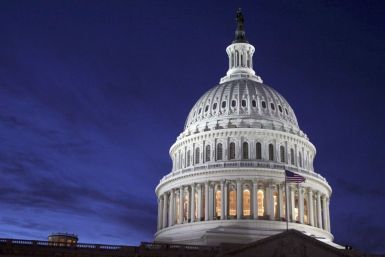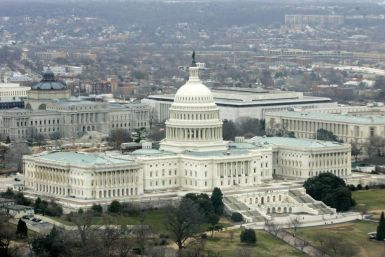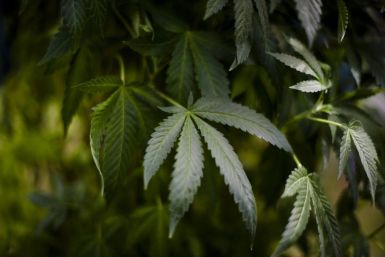New York City Mayor Mike Bloomberg is not waiting for Congress to address long-standing social concerns: he's donating $30 million of his money to launch a new $127 million program to improve the lives of thousands of young black and Latino men, who are cut off from New York City's civic, educational, and economic life.
The U.S. Postal Service, like much of the U.S. Government these days, is in belt-tightening mode. What's that mean for your local post office?
Is there oil statistic that can provide a rough "report card" on the U.S. economy and its outlook? Indeed there is.
Is there one statistic that can provide a quick-read on the U.S. economy's health and outlook? Indeed there is: it's the price of oil.
Russian Prime Minister Vladimir Putin did not mince words describing the United States' conduct during the debt deal crisis. Putin did, however, recognize that the United States, in the end, had the common sense to do the right end.
"Austerity" and "balance the federal budget" are the dominant themes in today's Washington political culture. Name a wasteful, inefficient federal program and that's a program this Congress may zero-in on for elimination...unless it's a U.S. post office.
Congress has done the urgent -- passed the U.S. debt deal to help eliminate the budget deficit. But what about an equally important U.S. problem: the jobs deficit?
Would distributing $3,000 gift cards to every American over age 16 get the U.S. economy out of its slump, and create more jobs? The tactic is unconventional, but if the economy doesn't start creating more jobs soon, Congressional leaders may have to implement the unconventional.
On Tuesday, President Barack Obama signed a bill to raise the U.S. debt ceiling, preventing the nation from defaulting for the first time in its history.
The Senate Tuesday easily passed the debt deal bill, 76-24, and immediately sent it to President Barack Obama, who is expected to sign it very soon. When the president does, the world's largest and most-technologically advanced economy will have averted a credit market-constraining default and ended a bitter political chapter.
The U.S. is one Senate vote away from averting a federal government default and toward taking a step in the direction of fiscal health: The Senate is expected to vote and pass the bipartisan debt deal legislation Tuesday around noon EDT, and President Barack Obama is expected to sign it quickly.
Medicare payments to nursing homes would now be slashed 11.1 percent beginning October 1, 2011. This has led to the health care sector witnessing the first triggers of Medicare hospital reimbursement cuts in lieu of raising the federal debt ceiling.
The bill, which will cut federal spending by up to $2.4 trillion over 10 years, raises the debt ceiling, and now goes to the Senate, where that chamber is expected to vote on it, and pass it, by Tuesday, late afternoon. If all goes as planned, the bill will be on President Obama's desk, and his signature will avert a default.
Leaders from both, major political parties fanned-out across Capitol Hill Monday night to secure votes to pass the bipartisan debt deal bill, which would also raise the debt ceiling, and avert a U.S. Government default. The strongest opposition will occur in the House, but two-chamber passage is expected by 1 a.m. EDT Tuesday.
The Congressional Budget Office's (CBO) estimate that the deal deal will cut the deficit by at least $2.1 trillion may not only save the debt deal -- it may save the nation's two, major political parties.
It's a debt deal that isn't ideal or loved. So why is it getting a vote on Capitol Hill?
With the debt deal negotiations done, the focus now shifts to the Republican-led House, where Speaker John Boehner, R-Ohio, will try to attract moderate Democrats to offset the likely high number of Tea Party House members who will vote against the bill. A Senate vote on the bill also could occur later Monday.
Two days before a financial market-rocking U.S. Government default, President Barack Obama Sunday night announced that leaders of both major political parties have reached a debt deal agreement to reduce the U.S. deficit and avert a default. Both the Senate and the House are expected to vote on the bill Monday.
The likely bipartisan debt deal bill received another boost Sunday afternoon when key Senate Tea Party members said they would not try to delay a vote on the bill via parliamentary tactics. As a result, a Senate vote could occur Monday -- which means the bill could be ready for a House vote later that day.
It was John Lennon who said there are no problems, only solutions, and on Sunday Congressional Democrats and Republicans continued to work on a bill that would avert a dreaded U.S. Government default. If the two sides continue to make progress, a vote on the bill could occur as early as Sunday night.
The petit right wing terror and Islamic terror with extended networks have gained grounds in Western world for few years.
After two weeks of acrimony, Democrats and Republicans, perhaps after having stared into the abyss, returned to the bargaining table Saturday. Still, no one will believe the issue has been resolved until President Barack Obama signs a bill that raises the debt ceiling and cuts the budget deficit.
Finally, after weeks of incessant, heated rhetoric and counter-productive posturing, there's been a positive development in the debt talks. The White House and both Republican and Democratic leaders Saturday confirmed that they are now in serious talks to raise the debt ceiling and avoid a looming U.S. Government default.
Apple out sold and out profited smartphone rivals in the second quarter this year using phones it introduced at least a year ago, but its upcoming iPhone 5 may push the company out of reach.
Led by Majority Leader Harry Reid, D-Nev., Senate Democrats Saturday worked feverishly to modify Reid's original debt plan in order to attract Senate Republicans. But a GOP Senate filibuster is expected late Saturday or Sunday, which, if it holds, would leave the U.S. without a debt ceiling increase, two days before a default.
Think a U.S. Government default on its debt won't affect you immediately? Think again: a default would likely weaken the dollar substantially, pushing up oil prices almost immediately, and that would send already-high U.S. gas prices to the stratosphere.
He is the author of "The buck stops here." And: "If you can't stand the heat, get out of the kitchen!" And: "If you want a friend in Washington, get a dog." Sounds like the perfect person to solve the U.S.'s seemingly intractable debt deal crisis.
Christine Lagarde, managing director of the International Monetary Fund, said the dollar may weaken if the U.S. Congress fails to raise the U.S. debt ceiling.
The store's sign indicated furniture for sale but the transactions hardly involved the stuff of residential decor: in New York City, 11 people have been arrested for allegedly being part of a drug ring that sold marijuana out of a furniture store.
A do-nothing U.S. House and a president whose political base is starting to wonder what he stands for. Yes, the debt deal impasse is revealing a crisis of leadership in Washington. It?s as if the U.S.?s highest elected officials have forgotten what?s important. Former President Harry S. Truman always knew. And he led.










